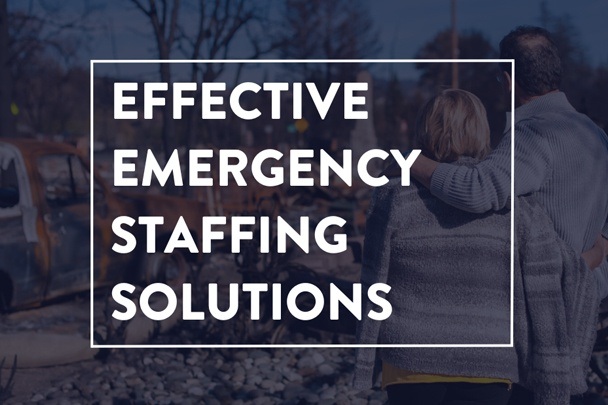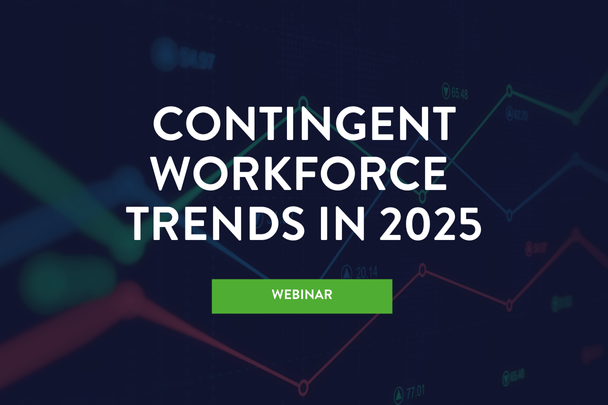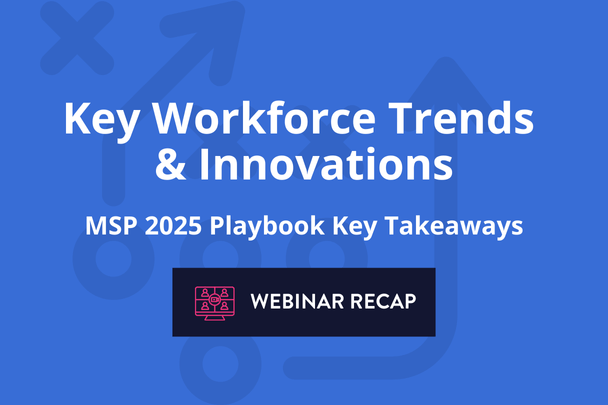Whether it is a humanitarian mission to aid refugees, a health-care crisis such as the recent COVID pandemic, or natural disaster relief from flooding, fires, or tornadoes, effective emergency response staffing is imperative. The ability to quickly locate the right disaster or humanitarian relief workers can mean the difference for many lives.
In this article, we will explore the various types of emergency staffing solutions required for a successful response, the roles these workers may assume, and five critical factors to consider when staffing for an emergency.
What does an emergency response worker do?
Emergency response workers play a crucial role in providing assistance and support during various natural disasters, epidemics, or refugee situations. They may offer medical, administrative, training, or other support functions for people and communities that require emergency response aid.
Disaster Recovery Staffing
In the aftermath of disasters, relief workers assist the communities that have been impacted. Their responsibilities include evaluating the extent of damage, repairing infrastructure, clearing debris, distributing essential supplies, and maintaining accurate records. For example, they may assist people in identifying their eligibility for financial assistance by gathering and organizing the necessary paperwork, as well as overseeing the application process and collaborating with homeowners and outside contractors.
Humanitarian Crisis Staffing
Humanitarian crisis workers are responsible for assessing needs, coordinating responses, providing medical assistance, advocating, and offering psychosocial support. For instance, they may provide processing and screening services for incoming refugees. Regardless of their specific focus, however, these workers fulfill their duties by strictly adhering to established protocols and regulations.
How to start an emergency response team.
Because of the unpredictability of many crises, emergency staffing solutions can be hard to plan for – but having an experienced staffing partner that can effectively meet the demand puts you ahead of the game. The best way to prepare from a staff augmentation perspective is to foster relationships in advance. When you understand the staffing capabilities of a firm ahead of time, staffing can be accomplished much faster and more effectively.
5 Essential Components of Emergency Staffing Solutions
Emergency staffing solutions are urgent and often large-scale in nature. Throughout my 11-year career of working on various disaster and emergency staffing projects, I have identified five essential factors that contribute to successful candidate placement and project completion in such situations.
- Quick Response – The ability to respond quickly is critical. It’s important to find a team like the one at Atrium, with committed and experienced account managers who can provide a rapid response time. Our team has extensive knowledge in assisting local, state, and federal projects that require quick ramp-up times and tight deadlines.
- Qualified Talent – When it comes to emergency staffing projects, it’s crucial to carefully screen potential staff members who will be handling sensitive situations and information. As an emergency staffing agency, conducting thorough phone screenings, behavioral-based interviews, and professional reference checks is important to ensure the best possible candidates are selected.
- Effective Processes– Finding qualified emergency response workers is just the first step. You also need a partner that can onboard and payroll your staff, ensuring you can focus on the mission at hand. Your staffing partner should take care of the entire onboarding process, which includes I-9, E-verify, and background checks. They should also ask in-depth screening questions to guarantee their staffing aligns with expectations and that the right project management plan is in place and supports team members in place.
- Compliance – Compliance is another important aspect of emergency management. A reliable staffing partner will oversee project compliance for all client documents, such as NDAs, credentials, and medical records. It is imperative to meet legal and regulatory requirements, allocate resources effectively, prioritize worker safety, assess ethical considerations, and maintain clear documentation.
- Ability to Scale –The impact of a disaster is unpredictable and can vary significantly in terms of size, duration, and location. The ability to scale staffing allows organizations to respond to changing circumstances and allocate resources where they are most needed. A reliable staffing partner should have a nationwide presence and be registered in all 50 states. This reach will enable effective staffing in every phase of relief efforts regardless of location.
Other Tips to Keep in Mind When Staffing an Emergency Operations Center
In conclusion, when staffing for an emergency project, be prepared for ANYTHING! Project scope and priorities will constantly shift, and you will need to quickly determine which action items need to be completed today and what might be able to wait until tomorrow. Remember to be patient, flexible, and understanding. Communication is key!
Atrium is prepared to respond quickly and activate qualified talent when disaster strikes. We have proven experience in managing complex project-based staffing in sectors such as disaster recovery, healthcare, and humanitarian staffing. As a result, our clients count on us to scale with them and equip them with the necessary talent to overcome any obstacle.











